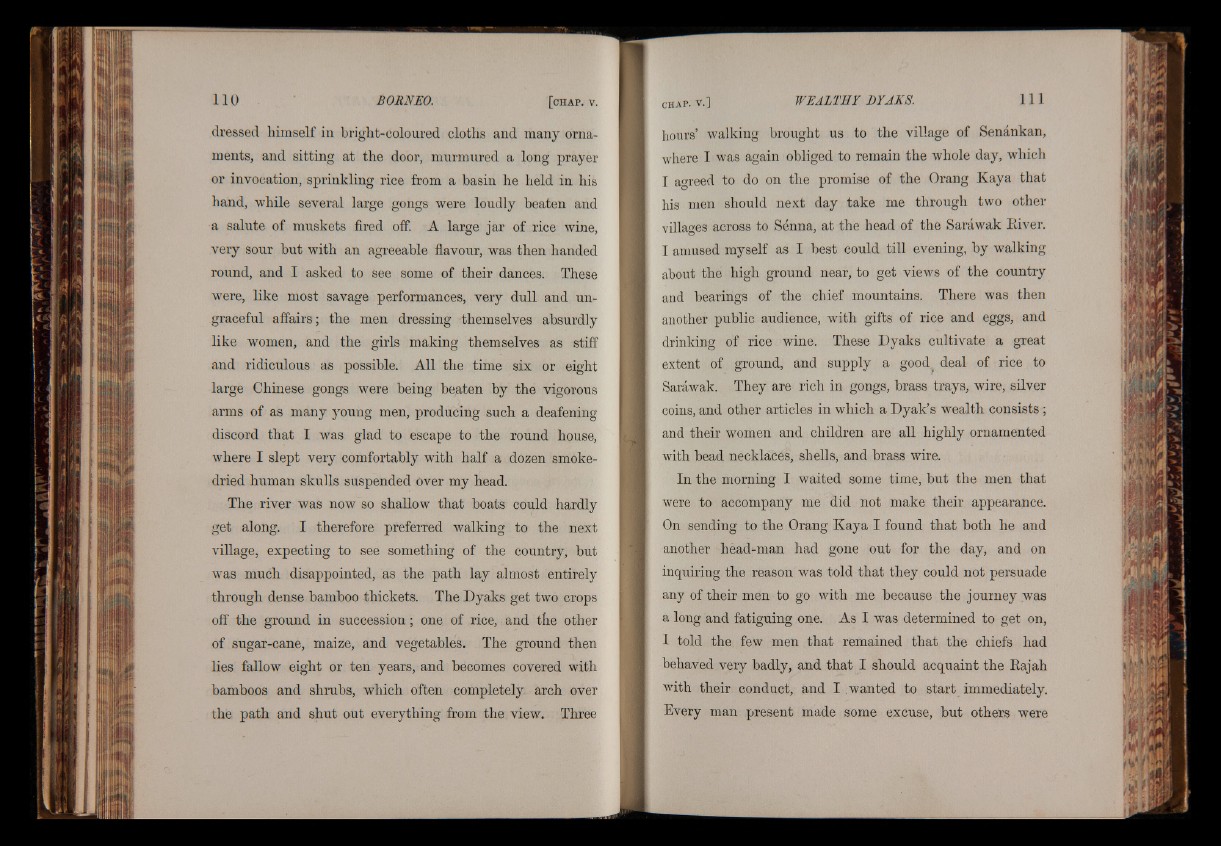
dressed himself in bright-coloured cloths and many ornaments,
and sitting at the door, murmured a long prayer
or invocation, sprinkling rice from a basin he held in his
hand, while several large gongs were loudly beaten and
a salute of muskets fired off. A large jar of rice wine,
very sour hut with an agreeable flavour, was then handed
round, and I asked to see some of their dances. These
were, like most savage performances, very dull and ungraceful
affairs; the men dressing themselves absurdly
like women, and the girls making themselves as stiff
and ridiculous as possible. All the time six or eight
large Chinese gongs were being beaten by the vigorous
arms of as many young men, producing such a deafening
discord that I was glad to escape to the round house,
where I slept very comfortably with half a dozen smoke-
dried human skulls suspended over my head.
The river was now so shallow that boats could hardly
get along. I therefore preferred walking to the next
village, expecting to see something of the country, but
was much disappointed, as the path lay almost entirely
through dense bamboo thickets. The Dyaks get two crops
off the ground in succession; one of rice, and the other
of sugar-cane, maize, and vegetables. The ground then
lies fallow eight or ten years, and becomes covered with
bamboos and shrubs, which often completely arch over
the path and shut out everything from the view. Three
hours’ walking brought us to the village of Senankan,
where I was again obliged to remain the whole day, which
I agreed to do on the promise of the Orang Kay a that
his men should next day take me through two other
villages across to Sdnna, at the head of the Sarawak Eiver.
I amused myself as I best could till evening, by walking
about the high ground near, to get views of the country
and bearings of the chief mountains. There was then
another public audience, with gifts of rice and eggs, and
drinking of rice wine. These Dyaks cultivate a great
extent of ground, and supply a good deal of rice to
Sarawak. They are rich in gongs, brass trays, wire, silver
coins, and other articles in which a Dyak’s wealth consists ;
and their women and children are all highly ornamented
with bead necklaces, shells, and brass wire.
In the morning I waited some time, but the men that
were to accompany me did not make their appearance.
On sending to the Orang Kaya I found that both he and
another head-man had gone out for the day, and on
inquiring the reason was told that they could not persuade
any of their men to go with me because the journey was
a long and fatiguing one. As I was determined to get on,
I told the few men that remained that the chiefs had
behaved very badly, and that I should acquaint the Eajah
with their conduct, and I wanted to start immediately.
Every man present made some excuse, but others were